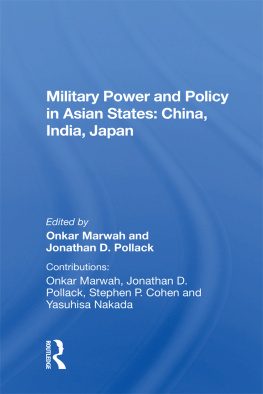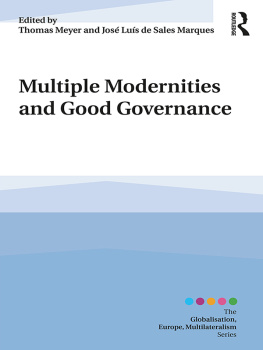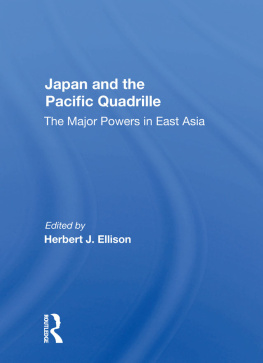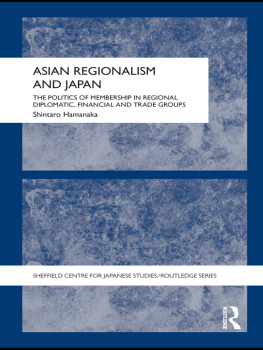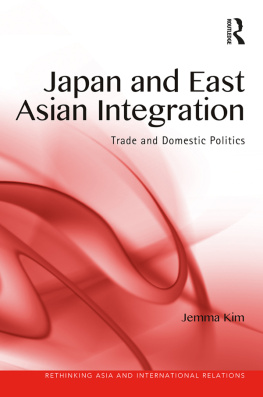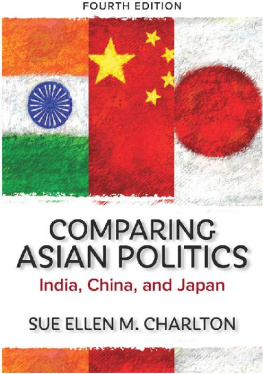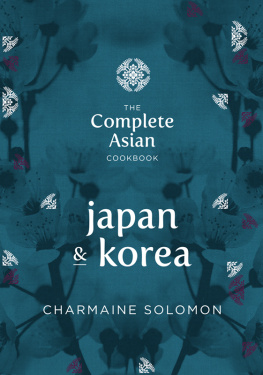
JAPAN AND ASIAN MODERNITIES
This collection of essays by an international group of scholars addresses the problematic nature of Asian modernity from an interdisciplinary perspective that includes political science, economic theory and the history of ideas. The principle focus of most contributions is Japan, due to that nations apparent success in adopting Western technologies in the broadest possible sense of the word, while retaining its own distinct cultural identity. The issues discussed include the emergence of an Asian modernity out of the dialogue between Western values and cultural practices on the one hand and indigenous traditions (both genuine and constructed) on the other, as well as the successes and perils encountered by most modernising Asian countries. These and other problems are analysed in a regional context, describing the impact that Japanese modernity has made in East and South East Asian countries both as a model to be imitated and a force to be reckoned with.
The book is addressed to a wide academic audience of scholars and graduate students working in the fields of the history of ideas, political science and comparative cultural studies as well as to economists and practitioners in other disciplines concerned with contemporary East and South-East Asia, and who encounter the issue of possible alternative modernities in their work.
The Editor, Rein Raud, is a graduate of St. Petersburg University and the University of Helsinki, where he received his doctorate in 1994. Since 1995 he has been the professor of Japanese Studies at the University of Helsinki. He has also acted as the professor of Asian Studies at the Estonian Institute of Humanities in Tallinn. He is the author of numerous scholarly publications on Japanese literature and the history of ideas, as well as translations from Japanese literature. In 2006 Raud was elected the rector of Tallinn University, Estonia, where he currently resides.
JAPAN AND ASIAN MODERNITIES
Edited by
Rein Raud
First published in 2007 by
Kegan Paul International
This edition first published in 2011 by
Routledge
2 Park Square, Milton Park, Abingdon, Oxon, OX14 4RN
Simultaneously published in the USA and Canada
by Routledge
711 Third Avenue, New York, NY 10017
Routledge is an imprint of the Taylor & Francis Group, an informa business
Rein Raud, 2007
All rights reserved. No part of this book may be reprinted or reproduced or utilised in any form or by any electronic, mechanical, or other means, now known or hereafter invented, including photocopying and recording, or in any information storage or retrieval system, without permission in writing from the publishers.
British Library Cataloguing in Publication Data
A catalogue record for this book is available from the British Library
ISBN 10: 0-7103-1103-6 (hbk)
ISBN 13: 978-0-7103-1103-0 (hbk)
Publishers Note
The publisher has gone to great lengths to ensure the quality of this reprint but points out that some imperfections in the original copies may be apparent. The publisher has made every effort to contact original copyright holders and would welcome correspondence from those they have been unable to trace.
Table of Contents
Introduction
Rein Raud
Chapter 1
Rationality, Ritual and Life-shaping Decisions in Modern Japan
Michael Pye
Chapter 2
All for One and One for All? Reconsidering Collectivity in the Modernisation of Japanese Business Firms
Bart Gaens
Chapter 3
Modernity and Transformation of the Japanese State
Takaaki Suzuki
Chapter 4
Japanese Model and Koreas Modernization Efforts: 1800-1890s
Huh Donghyun and Vladimir Tikhonov
Chapter 5
A Japanese Acculturation Pattern: the Affinities of Values in the Conflux of the Old and the New
Hiroko Willcock
Chapter 6
Navigating the Euro-American Enlightenment: Japan and the Modern World
Genz Yamamoto
Chapter 7
A Comparative Analysis of Challenge Discourses: Overcoming Modernity and the Asian Values Debate
Rein Raud
Chapter 8
Tradition and its Uses: Business and Ideology in Japaese Domestic Tourism
Markus Oedewald
Chapter 9
Wagamama Technology
Rupert Cox
Chapter 10
The Emergence of Chinese Keiretsu?
Eric Milliot
Chapter 11
Westernization of Business Organizations in Japan and China: Continuity and Change
Wai-keung Chung
Chapter 12
Sensei Seeks Students, Willing to Lend Tuitions
Danny Unger
Introduction
Rein Raud
It is no less true than it is trivial to to say that we are currently witnessing an age of global change, which has brought different cultures and social orders into contact and interdependence to an extent that they are as yet not fully able to handle. Economic turbulences in Southeast Asia or a civil war in the Middle East can affect the life of a Scottish fisherman as well as an Italian winemaker, and a toy created by a small Japanese company can acquire a prominent position in the personal life of a New York yuppie, but many state powers still cannot create peaceful modes of coexistence for heterogenous cultural groups, and political leaders of different cultural backgrounds fail to articulate their concerns and problems in a common language. The process of globalisation has amplified the consequences of each cultural conflict at the same time as it has enhanced the capacities of creative ideas to spread worldwide, which is why the processes of contemporary globalisation and modernisation have created new dangers together with new possibilities that are now at least theoretically accessible to most cultures and societies, with the exception of those that are trying to isolate themselves from the rest of the global community.
It is nevertheless obvious that the types of institutions, the practices and most of the mental blueprints of the artefacts that, taken as a totality, constitute what we call modernity, all originate in the Western world. This leads us to ask several questions. First of all, are there any reasons other than the expansion of the West that makes modernity inevitable? Or necessary? Or even desirable? Does modernisation always imply Westernisation? If so, then in what degree? Or are these words simply synonyms? Do all particular modernities follow a single deep-structural model, or are alternative modernities possible? Are all cultures and societies that claim to be open to the global modernity truly modern at heart? If not, then are there clear criteria that help us to distinguish a pseudo-modernity from a real one? Before we can adress any of these issues we should try to define in more detail the rather vague notion of modernity itself.
The word modernity will here be used in four different senses. First, there is the technological modernity that has transformed our living-world by providing us with tools, machines and technologies which have facilitated the processes of production of everything that we (supposedly) need in our daily lives and rendered previously complicated and tiresome tasks much easier to handle. On the receiving side, this same phenomenon could be called consumer modernity and defined through the availability of canned food, Band-Aids, batteries, reasonably fashionable clothes, etc. A place has achieved consumer modernity when it is no longer necessary to take all these items with oneself when going there for a long time. This kind of modernity is promoted by the welfare state discourse as well as the seductive discourses of commercial media.





